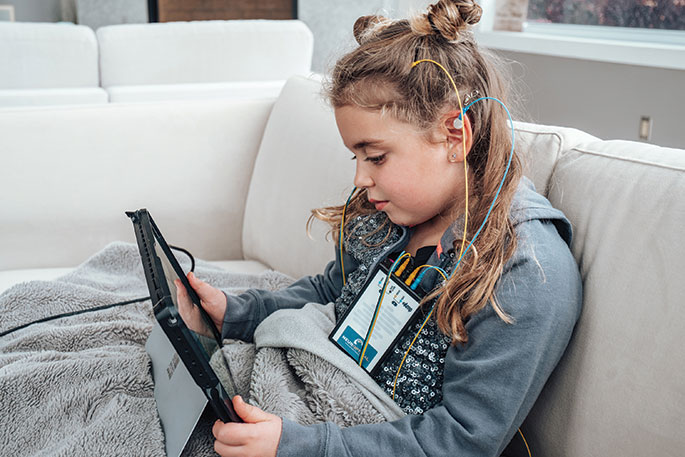Children's Executive Function: Why It is More Important Than You May Think (And How to Gently Strengthen It)
Think of your child's brain as a conductor of daily life, not a symphony: it guides attention, calms impulses, shifts gears, and remembers what is most important. Executive function is that. It is a group of mental skills rather than a single ability that help kids (and adults) organize, prioritize, recall, control their emotions, and remain adaptable when life throws them curveballs.

These abilities make up the unseen framework that supports everything from sharing toys and tying shoelaces to handling stress, coming to decisions, and navigating puberty. Additionally, executive function is more delicate than you might imagine and takes time to develop, just like any other structure.
What Is Executive Function, Really?
It helps us pause before acting, keep goals in mind, juggle several bits of information, switch tasks when needed, and relax ourselves when emotions run high.
Think of it as the “air traffic control” of the mind especially crucial during takeoffs and landings, like starting school, making friends, or adjusting to change.
But unlike a neat checklist of developmental milestones, executive function develops slowly and unevenly. It starts in infancy, but doesn’t fully mature until early adulthood. And while every child builds these skills at their own pace, some face steeper climbs than others.
How Executive Function Challenges Show Up in Kids
Difficulties with executive function don’t necessarily have a name tag. They could appear as:
Unexpected tantrums that appear out of nowhere
Frequently failing to remember directions
Time management and school organization issues
Emotional outbursts or impetuous behavior
Having trouble focusing or adjusting to new routines
In addition, youth with weak executive function may exhibit disorganization, avoidance, or a failure to plan for life beyond the next few hours, let alone the future.
The three superpowers that make up executive function are not one thing.

Three key musicians make up the orchestra of executive function rather than a single, powerful skill:
The capacity to restrain one's impulses and wait before acting is known as inhibitory control, which explains why your youngster has not eaten the full candy bar yet.
Working memory is the short-term mental Post-it notes that enable children to recall what they have just read or follow multi-step instructions.
Cognitive flexibility is the mental dexterity that enables children to change tasks, adjust to new regulations, or adopt new viewpoints.
Each of these abilities can be developed in a variety of ways and develops at varying rates. This implies that there is no one-size-fits-all road map, but there are many chances for direction.
The Environment Matters A Lot
One of the most optimistic elements of executive function is its malleability. It is not finalized. In actuality, it is extremely sensitive to the surroundings of a child. These abilities can be hampered by trauma, chaotic homes, ongoing stress, and limited access to enrichment activities.
However, the opposite is also true: they can be strengthened by calming routines, enriching activities, and supportive relationships.
Evidence-Based Ways to Strengthen Executive Function
Here are a few of the most promising, scientifically supported treatments, along with an illustration of what they might look like in a child's environment:
Training of the Mind and Neurofeedback

Measurable gains in particular executive skills have been demonstrated by computer-based programs such as Mightier (for emotional control via biofeedback) and Cogmed (for working memory). They are organized, frequently gamified, and beneficial, particularly for children with working memory problems or ADHD.
However, not every youngster gains the same advantages. The degree to which these abilities "transfer" to daily life is also up for discussion. Translation: Even if your child improves at the game, they may still have trouble with their homework.
Programs for education such as Tools of the Mind
Forget memorizing facts by heart. Through storytelling, cooperative learning, and imaginative play, the Tools of the Mind curriculum helps children develop emotional intelligence and self-control. Imagine kids assuming the role of shopkeepers and solving problems through conversation and clocks.
By practicing executive function rather than merely discussing it, these programs foster it.
Sports and Physical Activity
Team sports, yoga, martial arts, and aerobic exercise develop the brain in addition to building muscles. Following the rules, making decisions quickly, keeping an eye on oneself, and having mental flexibility are all necessary for these activities.
Additionally, they improve mood and lessen stress, both of which are important for executive function. Simple activities like dancing in the living room or taking a stroll in the outdoors can assist the brain receive oxygen and soothe the nervous system.
Breathing exercises and mindfulness

For executive function, stress is like kryptonite. Higher-order thinking is just not available to a toddler who is in "fight or flight" mode. Now for the silent superpower: mindfulness.
Children who practice mindfulness learn to stop, take a deep breath, and focus on the present moment without passing judgment. Body scans, gratitude exercises, belly breathing, and even kindness meditations are kid-friendly techniques.
According to research, children of all ages can benefit from mindfulness by experiencing less worry, more focus, and better emotional regulation.
A single size does not fit everyone.
The reality is more complex, even while the internet may offer the "Top 10 Ways to Boost Executive Function." What is very effective for one youngster may be too much for another.
It could backfire, for instance, to urge a very anxious youngster to complete intense cognitive training sessions when what they actually need is emotional support, outside time, or relaxation.
The secret? Adapt the intervention to your child's stress level, temperament, and strengths. Begin modestly. Keep your curiosity alive. As you go, make adjustments.
What's Your Reaction?




















